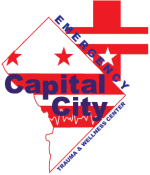Where do I fit in? BIPOC youth share 6 ways to feel connected
MHA Admin
Fri, 09/30/2022 – 12:43
A perk of adulthood is seeing the past in a different light. Maybe you thought your hobbies and likes were odd as a child but found others with the same interests as you got older – realizing that you were perfectly normal all along, just around peers who enjoyed different things. But you don’t see that as a young person in the midst of it, and you can feel especially ostracized as a young BIPOC individual.
In a recent MHA webinar, four youth leaders spoke from lived experiences about not fitting in, unlike others, having different interests, or not finding a comfortable space, and how they overcame these feelings and the impact on their mental health. Two of the speakers are former MHA Youth Mental Health Council members: Marcus Alston, founder and executive director of Alston for Athletes, and Cyn Gomez, ASUC QT+ wellness director and student at the University of California, Berkeley. Panelists Irene Hu and Anya Beltran are members of the AAKOMA Project – an MHA partner that supports BIPOC and marginalized teens, young adults, and their family’s mental health through dialogue, authentic, equitable engagement in communities, and understanding that everyone deserves optimal mental health.
Here are six takeaways to overcoming the challenges of fitting in from these leaders:
1. Be yourself
Hu said that pretending to like what she thought her peers liked would make her fit in, but she still wasn’t making connections. Hu decided to be her authentic self when entering high school. “I’m expressing myself and my real interests and this actually allowed me to make friends with common interests,” Hu said.
2. Join clubs
All of the speakers expressed the importance of seeking out organized social groups. Beltran talked about looking outside of the school setting for interest clubs that aren’t offered. For example, seek out groups in libraries or community centers.
3. Use social media, but don’t get sucked into it
Social media is a great way to find others with shared experiences and similar likes. Alston said he didn’t feel so alone after finding online other young athletes struggling with their mental health. However, don’t measure your worth based on follows and likes.
4. Embrace your identity
Gomez spoke about the community he found when transitioning to college. Identities that hindered him before, such as being queer and Latino, are now celebrated and more common in this new environment.
5. Stick with people who care
Having friends is an important part of life and everyone’s mental health. Make sure the people around you are concerned for your well-being, listen to you, and value you as a complete person.
6. Get adults involved
School and community leaders working with youth need to step up to provide safe and welcoming spaces for all. Diverse clubs, extracurriculars, opportunities for cultural exchange, and affinity groups are easy ways to catch youth that feel like they don’t have a place to be themselves. In addition, advocate for a peer support program, which can improve feelings of safety, inclusiveness, and understanding.
Gomez said every young person needs a safe, loving, and supportive community and have folks who care about them. “You deserve it,” said Gomez. “If you’re struggling to find it now, it’s going to come around eventually, and the frustration and the heartache that comes from it, that too will pass.”







